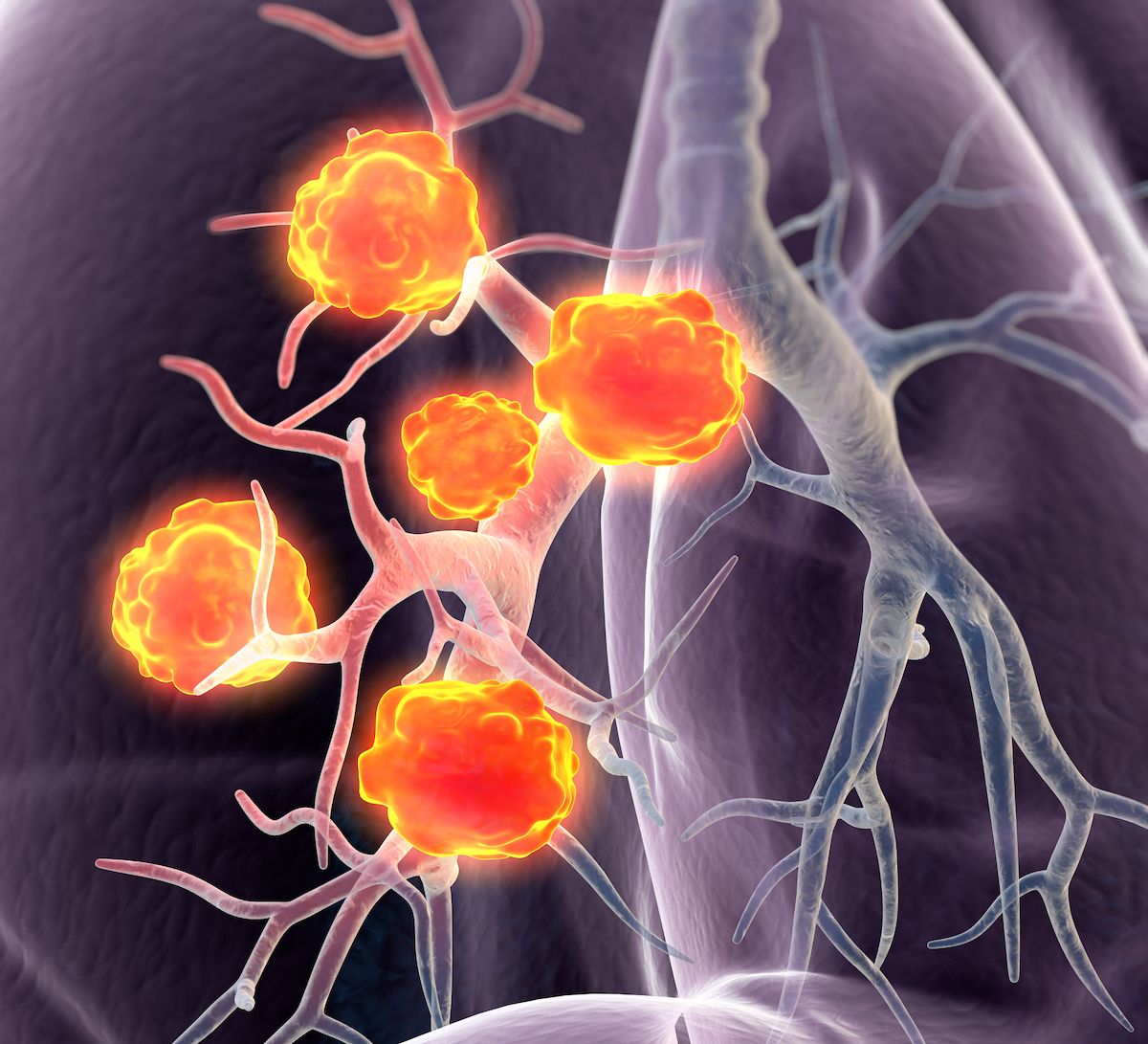FDA Issues CRL for Sotorasib in Advanced/Metastatic KRAS G12C+ NSCLC
A review from the FDA confirms the dose comparison post-marketing requirement that was detailed at the time of sotorasib’s accelerated approval for those with KRAS G12C–mutated non–small cell lung cancer.
Sotorasib originally earned accelerated approval as a treatment for those with NSCLC harboring a KRAS G12C mutation in May 2021.

The FDA issued a complete response letter to a supplemental new drug application (sNDA) seeking the full approval of sotorasib (Lumakras) as a treatment for patients with locally advanced or metastatic non–small cell lung cancer (NSCLC) harboring a KRAS G12C mutation, according to a press release from Amgen.1
Additionally, the regulatory agency requested another confirmatory study as part of a new postmarketing requirement to support the full approval of sotorasib in this indication that needs to be completed by February 2028 at the latest. The FDA also announced the fulfillment of a dose comparison post-marketing requirement issued at the time of the accelerated approval, which validates sotorasib at 960 mg once a day as the standard dose for those with KRAS G12C–mutated NSCLC.
Sotorasib originally earned accelerated approval as a treatment for those with NSCLC harboring a KRAS G12C mutation in May 2021.2 Supporting data for the accelerated approval came from the phase 1/2 CodeBreaK 100 trial (NCT03600883), in which investigators highlighted an objective response rate of 36% (95% CI, 28%-45%) and a median duration of response of 10 months (range, 1.3+ to 11.1) in those who received sotorasib at 960 mg once a day.
Supporting data for the sNDA seeking the full approval of sotorasib came from the phase 3 CodeBreaK 200 study (NCT04303780), in which sotorasib elicited progression-free survival (PFS) improvements compared with docetaxel in various subgroups of patients with previously treated KRAS G12C–mutated NSCLC. Investigators observed PFS improvements with sotorasib in STK11-altered (HR, 0.68; 95% CI, 0.45-1.05) and STK11 wild-type disease (HR, 0.65; 95% CI, 0.46-0.92), KEAP1-altered (HR, 0.84; 95% CI, 0.48-1.47) and KEAP1 wild-type disease (HR, 0.62; 95% CI, 0.45-0.84), and TP53-altered (HR, 0.83; 95% CI, 0.58-1.18) and wild-type disease (HR, 0.48; 95% CI, 0.30-0.75).3 These data were presented at the 2023 American Society of Clinical Oncology (ASCO) Annual Meeting.
In October 2023, the FDA’s Oncologic Advisory Drug Committee (ODAC) voted that the PFS data from the CodeBreaK trial could not be reliably interpreted as part of the sNDA seeking full approval for sotorasib.4
“The question before the committee today was not one of the efficacy of sotorasib in lung cancer, but more specifically the ability to interpret data from a relatively small clinical trial conducted with a highly anticipated agent in a hyper-information age where both patients and providers had high expectations,” ODAC meeting chair Ravi A. Madan, MD, senior clinician of the Genitourinary Malignancies Branch and head of the Prostate Cancer Clinical Research Section at the National Institute of Health, said in the meeting.4 “Given that we had hours of statistical permutations discussed, that could change interpretations, I had to vote no on the reliability of the PFS benefit from this study.”
The primary end point of the CodeBreaK 200 trial was PFS per blinded independent central review based on RECIST v1.1 criteria. The trial included patients 18 years and older with an ECOG performance status of 0 or 1 and pathologically documented NSCLC with a KRAS G12C mutation as confirmed via central testing.
References
- Amgen provides regulatory update on status of Lumakras® (sotorasib). News release. Amgen. December 26, 2023. Accessed January 2, 2024. https://bit.ly/4aK4e7p
- FDA grants accelerated approval to sotorasib for KRAS G12C mutated NSCLC. News release. FDA. May 28, 2021. Accessed January 2, 2024. https://bit.ly/46A08vV
- Skoulidis F, De Langen A, Paz-Ares LG, et al. Biomarker subgroup analyses of CodeBreaK 200, a phase 3 trial of sotorasib versus (vs) docetaxel in patients (pts) with pretreated KRAS G12C-mutated advanced non-small cell lung cancer (NSCLC). J Clin Oncol. 2023;41(suppl 16):9008. doi:10.1200/JCO.2023.41.16_suppl.9008
- Oncologic Drugs Advisory Committee (ODAC) Meeting. October 5, 2023. Accessed January 2, 2024. https://bit.ly/3PMMRt9